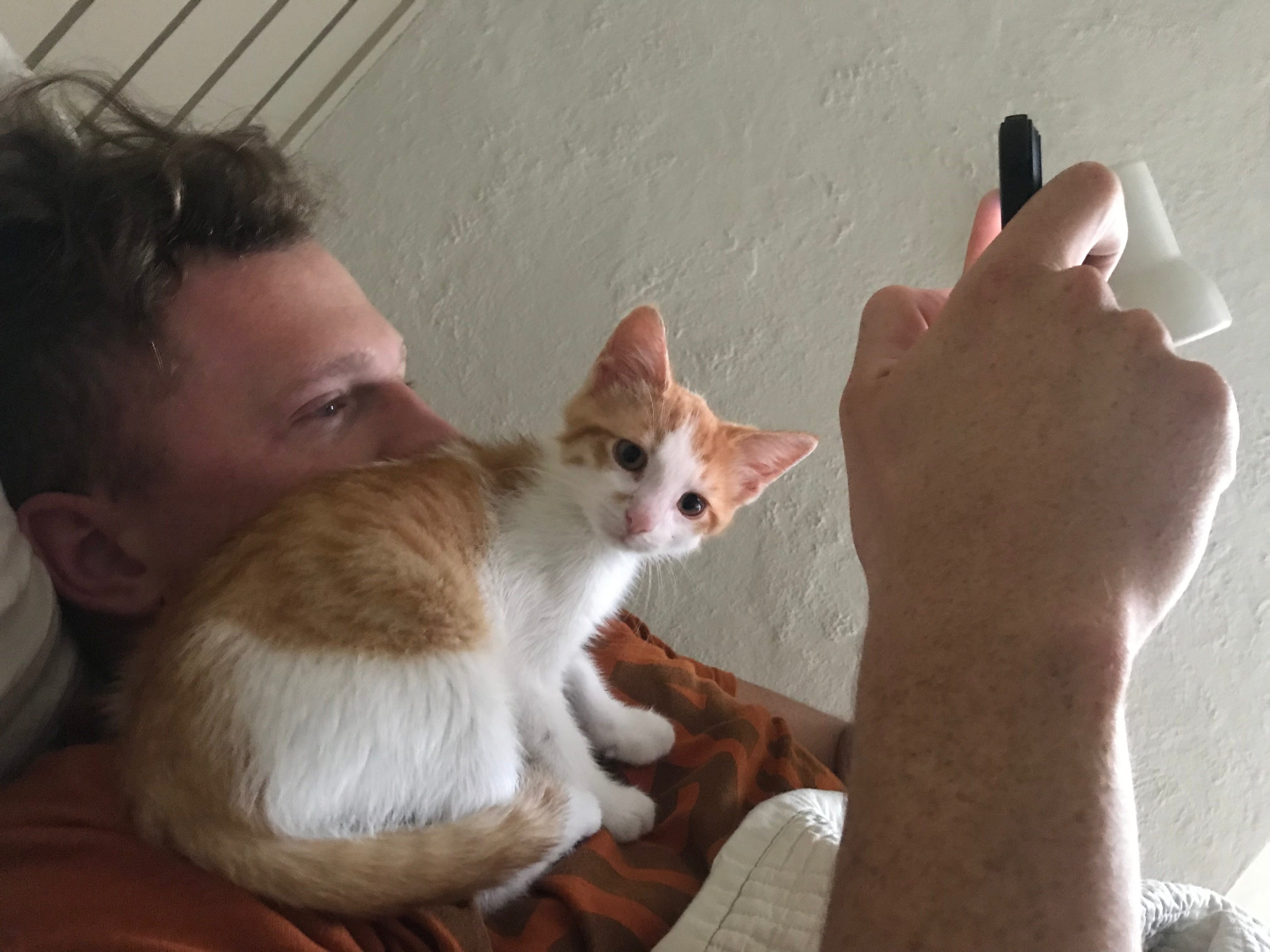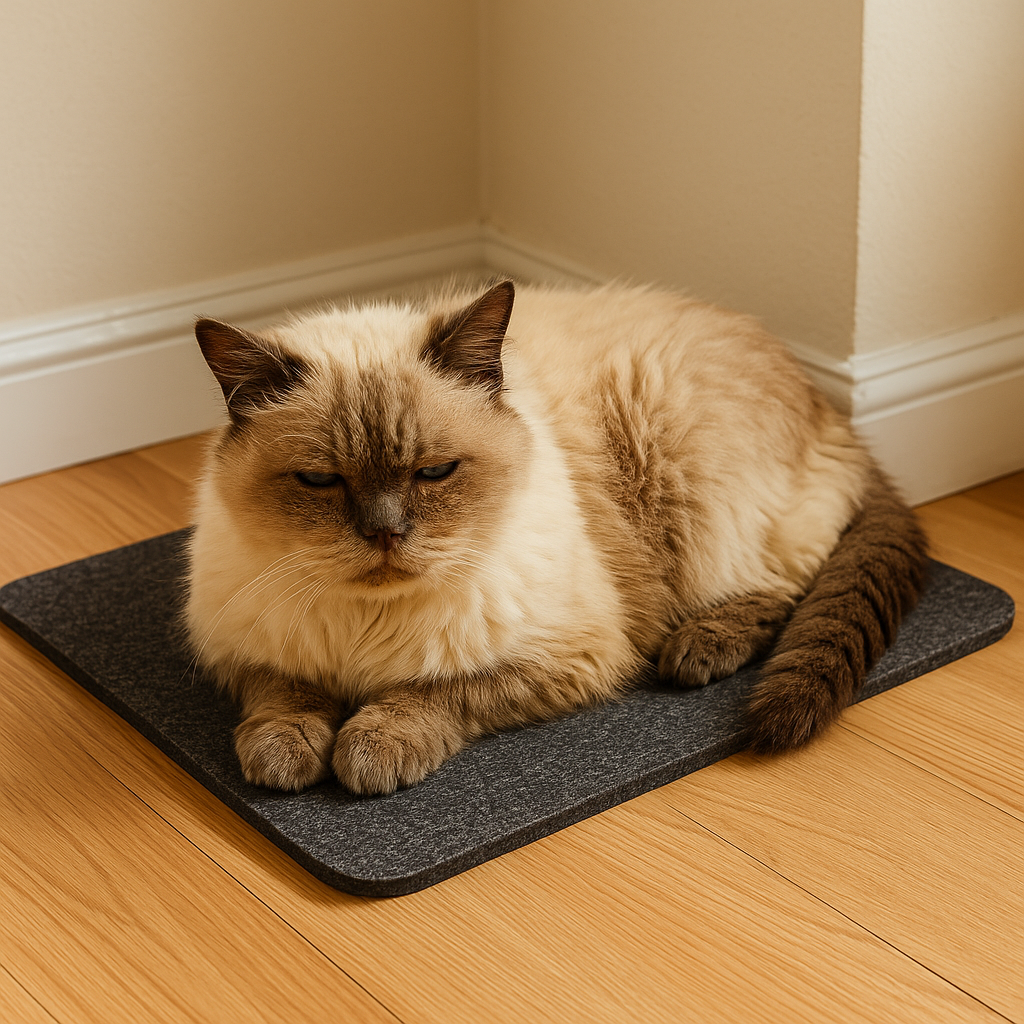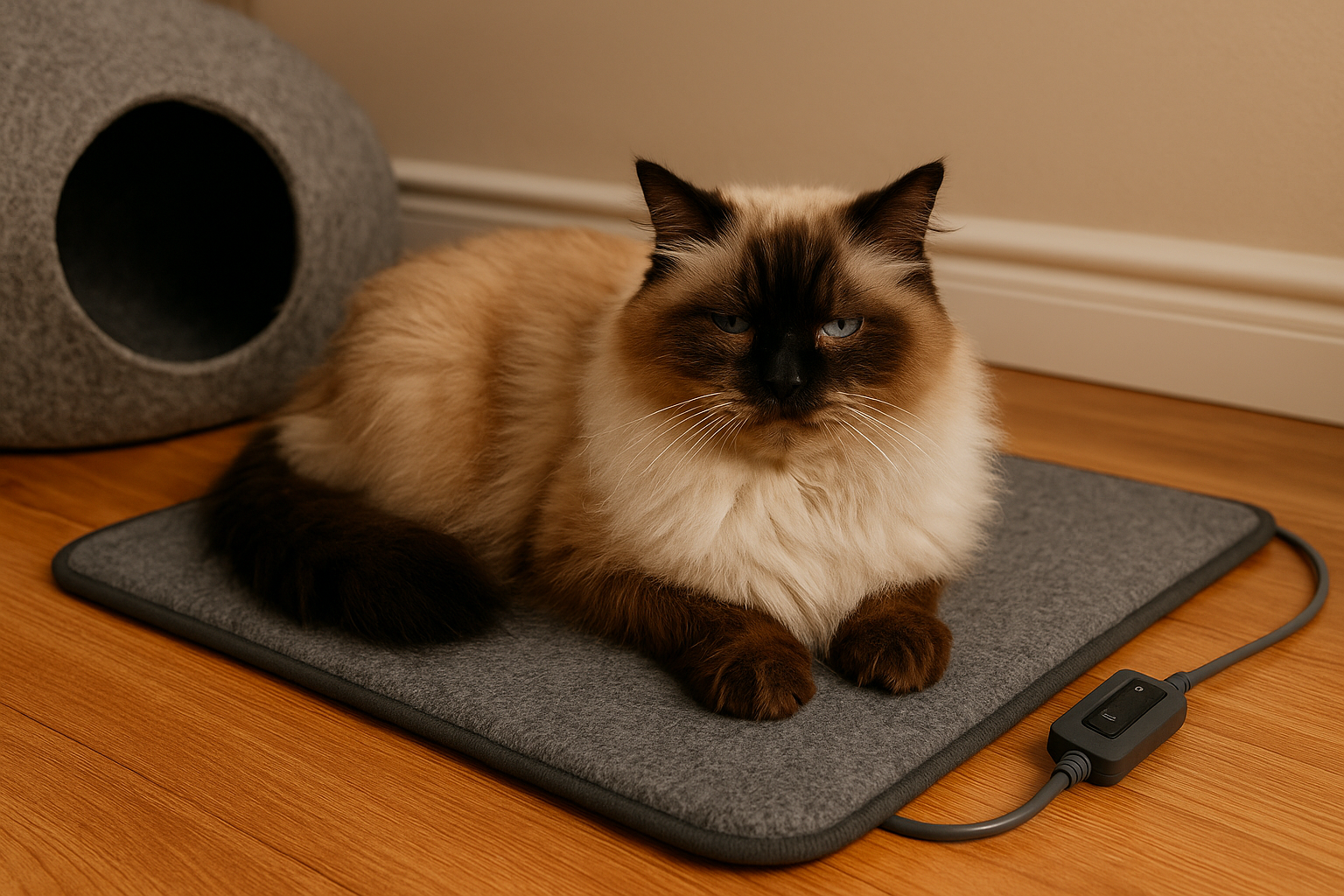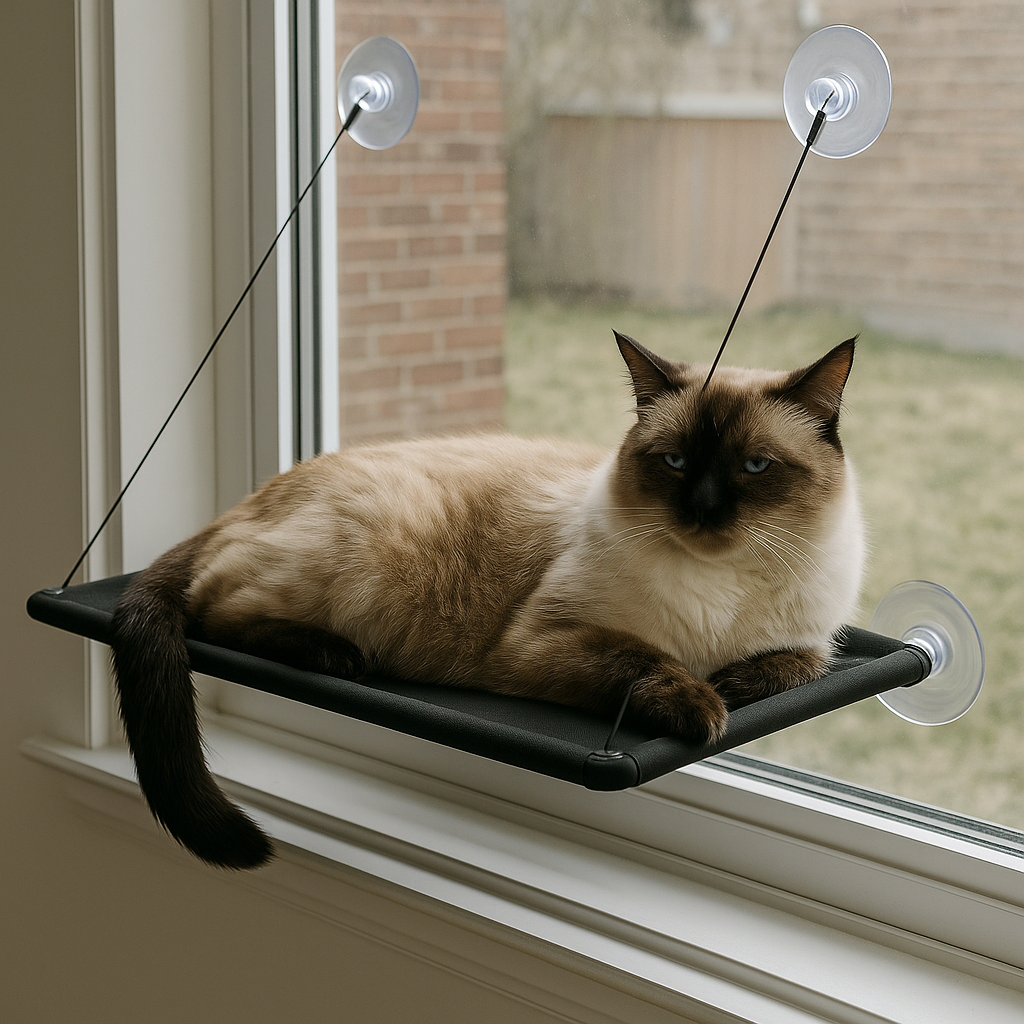Cat Breathing Through Mouth? Causes, Symptoms & Vet Advice 2025 💨🐱
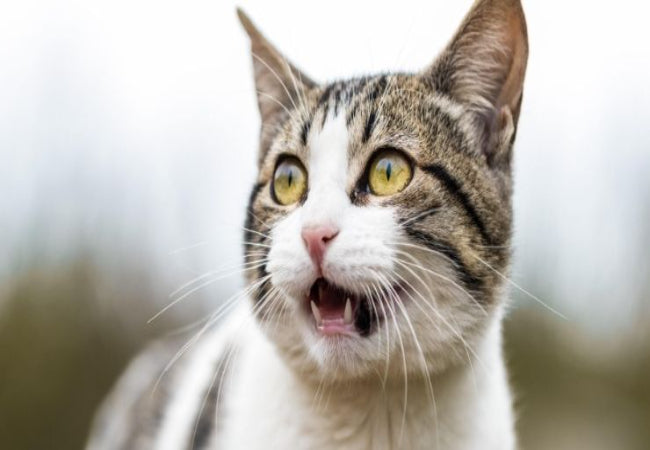
In this article
Cat Breathing Through Mouth? Causes, Symptoms & Vet Advice 2025 💨🐱
By Dr. Duncan Houston BVSc
Cats are generally nose breathers, so if you notice your cat suddenly breathing through its mouth, it can be a sign that something is affecting their respiratory system or overall health. Mouth breathing in cats can range from mild issues to life-threatening emergencies, so it’s essential to understand the potential causes and act promptly.
Potential Causes of Mouth Breathing in Cats
1. Respiratory Infections
-
Cats can develop upper respiratory infections (URIs) caused by viruses like feline herpesvirus or feline calicivirus, as well as bacterial infections.
-
Symptoms may include sneezing, nasal discharge, coughing, eye discharge, and lethargy.
-
Infections can make breathing through the nose difficult, causing the cat to resort to mouth breathing.
2. Heart Disease
-
Heart problems can lead to fluid buildup around the lungs (pulmonary edema) or in the chest (pleural effusion).
-
Signs may include coughing, fatigue, rapid breathing, and mouth breathing.
-
Early detection is key, as untreated heart disease can progress to congestive heart failure.🐱
3. Heatstroke
-
Cats are susceptible to overheating, especially in hot environments, because they cannot cool themselves efficiently.
-
Symptoms of heatstroke include panting, drooling, lethargy, and mouth breathing.
-
Immediate cooling and veterinary care are critical to prevent serious complications.
4. Asthma
-
Feline asthma causes inflammation of the airways, making breathing difficult.
-
Triggers can include smoke, dust, strong odors, or certain types of litter.
-
Signs include coughing, wheezing, open-mouth breathing, and rapid respiration during an asthma attack.
5. Lung Disease
-
Chronic bronchitis, pneumonia, lungworms, or even lung tumors can lead to difficulty breathing.
-
Cats may exhibit mouth breathing, coughing, lethargy, or weight loss.
-
Diagnosis often requires X-rays, blood tests, or imaging studies.
6. Trauma or Injury
-
Accidents or injuries may cause shock, pain, or respiratory compromise, leading to mouth breathing.
-
This is an emergency, and immediate veterinary attention is necessary.
7. Foreign Objects
-
Objects stuck in the throat, mouth, or nasal passages can obstruct airflow.
-
This may cause gagging, coughing, pawing at the mouth, and mouth breathing.
-
Prompt veterinary care is required to remove the obstruction safely.
8. Allergies
-
Severe allergic reactions can cause swelling in the throat or upper airway, resulting in open-mouth breathing.
-
Other signs may include itching, sneezing, and vomiting.
-
Allergic reactions can escalate quickly, making immediate vet intervention critical.
9. Dental Disease
-
Oral pain from gingivitis, tooth abscesses, or stomatitis can cause cats to breathe through their mouths.
-
Look for signs like drooling, bad breath, pawing at the mouth, and difficulty eating.
10. Neurological Disorders
-
Certain neurological conditions can impair a cat’s ability to regulate breathing.
-
Symptoms may include abnormal breathing patterns, open-mouth breathing, or unusual postures while resting.
What You Should Do 🐱
-
Monitor for distress signs: Rapid breathing, open-mouth breathing, blue gums, lethargy, and refusal to eat or drink.
-
Act quickly: Many causes of mouth breathing are serious or life-threatening.
-
Seek veterinary care immediately: Only a vet can diagnose the underlying cause and provide proper treatment.
-
Do not attempt home remedies for serious cases like choking, heart issues, or heatstroke without professional guidance.
Key Takeaways
-
Mouth breathing is not normal in cats and often signals an underlying problem.
-
Causes range from mild respiratory infections to severe conditions like heart disease or trauma.
-
Early detection and prompt veterinary attention can significantly improve outcomes.
-
Always monitor your cat’s behavior, appetite, and breathing patterns for subtle warning signs.
Cats hide illness well, so even occasional open-mouth breathing warrants attention. Acting quickly could save your cat’s life.




